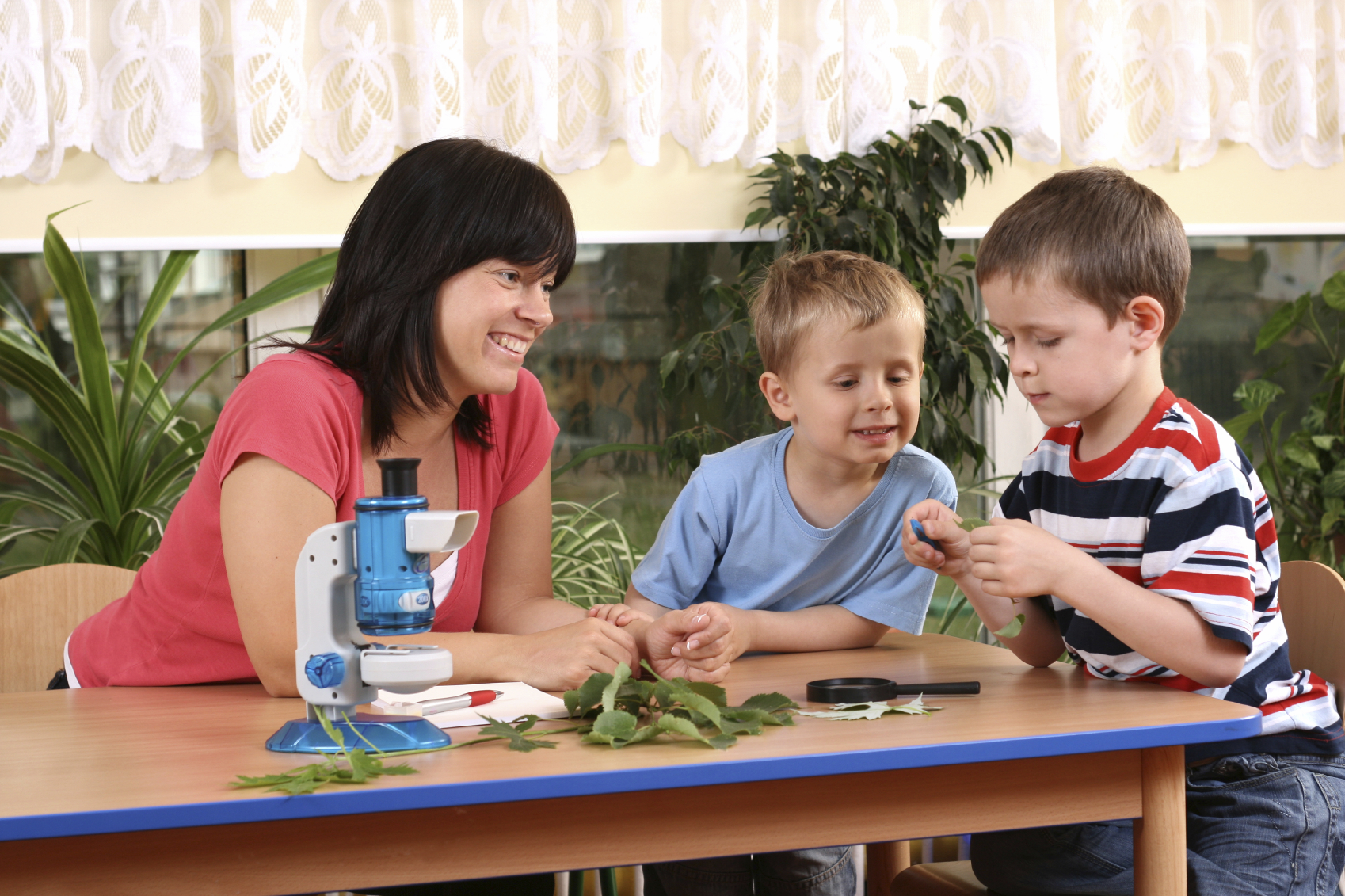Bright Ideas
NSTA Adopts Position on Early Childhood Science Education

In a position statement adopted by the National Science Teachers Association (NSTA) in January 2014, NSTA made an official endorsement of the importance of science learning in early childhood. The statement calls on educators to provide rich learning environments that allow children to ask questions, plan investigations, and discuss findings through open-ended, inquiry-based explorations. Excerpts of the position statement follow, and you can read the entire position statement here.
Young Children and Science Learning
NSTA identifies the following key principles to guide the learning of science among young children.
- Children have the capacity to engage in scientific practices and develop understanding at a conceptual level.
- Adults play a central and important role in helping young children learn science.
- Young children need multiple and varied opportunities to engage in science exploration and discovery.
- Young children develop science skills and knowledge in both formal and informal settings.
- Young children develop science skills and knowledge over time.
- Young children develop science skills and learning by engaging in experiential learning.
Declarations
NSTA recommends that teachers and other education providers who support children’s learning in any early childhood setting should
- recognize the value and importance of nurturing young children’s curiosity and provide experiences in the early years that focus on the content and practices of science with an understanding of how these experiences connect to the science content defined in the Next Generation Science Standards (NGSS)(NGSS Lead States 2013);
- understand that science experiences are already a part of what young children encounter every day through play and interactions with others, but that teachers and other education providers need to provide a learning environment that encourages children to ask questions, plan investigations, and record and discuss findings;
- tap into, guide, and focus children’s natural interests and abilities through carefully planned open-ended, inquiry-based explorations;
- provide numerous opportunities every day for young children to engage in science inquiry and learning by intentionally designing a rich, positive, and safe environment for exploration and discovery;
- emphasize the learning of science and engineering practices, including asking questions and defining problems; developing and using models; planning and carrying out investigations; analyzing and interpreting data; using mathematics and computational thinking; constructing explanations and designing solutions; engaging in argument from evidence; and obtaining, evaluating, and communicating information (NRC 2012, NGSS Lead States 2013);
- recognize that science provides a purposeful context for developing literacy skills and concepts, including speaking, listening, vocabulary development, and many others; and
- recognize that science provides a purposeful context for use of math skills and concepts.
NSTA recommends that teachers and other providers who support the learning of science in young children be given professional development experiences that
- engage them in learning science principles in an interactive, hands-on approach, enabling them to teach about science principles appropriately and knowledgeably;
- are ongoing and science-specific;
- help them understand how children learn science and engineering practices (NRC 2012, NGSS Lead States 2013);
- inform them about a range of strategies for teaching science effectively; and
- include the use of mentors to provide ongoing support for educators for the application of new learning.
NSTA recommends that those in a position to provide financial, policy, and other support for early childhood education should
- provide appropriate resources for teachers and children;
- ensure a positive and safe environment for exploration and discovery;
- ensure teachers receive sustained science-specific professional development that includes how children learn and how to teach science;
- provide mentoring; and
- establish a coherent system of science standards, instruction, appropriate assessment, and curriculum.

